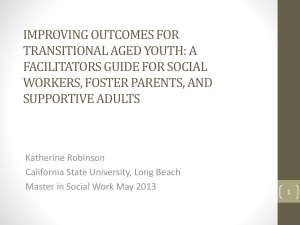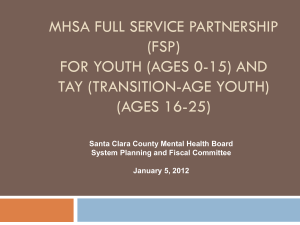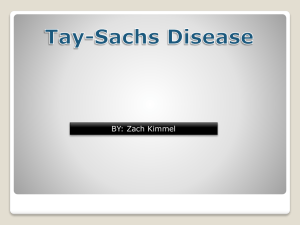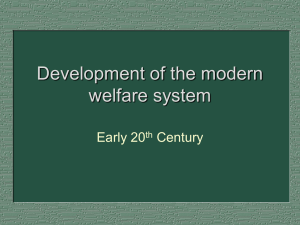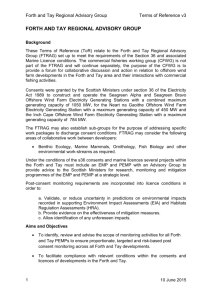Enhancing Mental Health Services for Transitional Age Youth in
advertisement
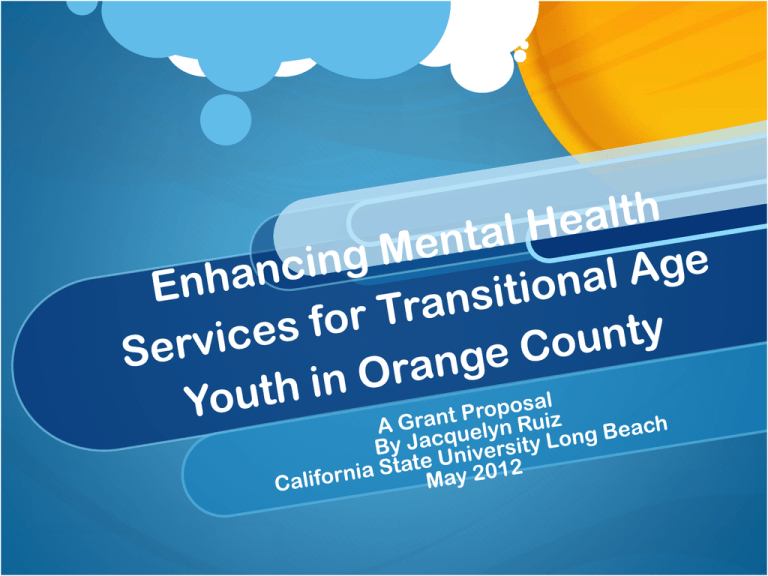
Transitional Age Youth (TAY) & Mental Health Goal: To create a developmentally competent mental health program for vulnerable TAY, specifically those leaving the child welfare and the juvenile justice system. Facts TAY face difficult challenges in adolescence & often lack supportive/protective factors that aid in successful transitions into adulthood. TAY leaving child welfare and juvenile justice systems experience high rates of homelessness, unemployment, unplanned pregnancies, mental health disorders, and low educational attainment (Courtney, Dworsky, Lee, & Pollack, 2007) The United States Government Accountability Office (2008) reported that over 2.4 million or 6.5% of young adults between the ages of 18 and 26 had a serious mental illness in 2006. Social Work Relevance Grant addresses the gap of mental health coverage TAY experience when services provided through child welfare & juvenile justice systems end. Social workers need to be proactive in reaching out to TAY since they are at higher risk to re-enter the child welfare system as parents or the adult justice system. Advocating for improved mental health services for a population of youth that are greatly underserved. Cross-cultural Relevance TAY in the California child welfare systems are disproportionally African American, where African American children represent 6% of the population but are 13% of the children in the child welfare system (U.S. Department of Health and Human Services, Children’s Bureau, 2009). TAY involved in the California juvenile justice system are disproportionally African American (26%) and Latino (52%) (State of California Department of Justice, 2011) Methods Target Population: Orange County Conservation Corp’s (OCCC) program participants including: former foster youth, gang involved youth, youth leaving juvenile/adult justice systems, parenting youth, high school drop outs, & homeless youth. Funding Source Strategies: OneOC (Non-profit Consulting group), online foundation directory. California Wellness Foundation selected for matching goals & grant criteria. Needs Assessment Sources: County of Orange Community Indicators report (2010) Budget Approximated at $113,500 and includes: Program director & psychiatrist salaries, program supplies, office supplies, and operational costs. GRANT PROPOSAL Summary: To enhance services to the OCCC, which provides job training, work experience, high school diploma opportunities, case management, and access to supportive services for TAY. The new program would add a developmental and culturally competent mental health component to address emerging mental health issues & promote protective factors for TAY struggling with the transition into adulthood. Sustainability: This program would be funded for the first 3 years through the California Wellness Foundation. Grant Proposal: Objectives & Evaluation To promote the coping skills, social support, and psychological protective factors needed for TAY to become successful and self-sufficient adults. This program has three components: (a) Group Therapy, (b) Individual Therapy, and (c) Psychiatric Services. Internal program evaluations utilized incorporating the Life Worth Living and Quality of Life Index & the Modified Global Assessment of Functioning (M-GAF) (Hall, 1995; Rakfeldt, 2003). Lessons Learned Creating a grant that addressed two different populations proved to be difficult when making the literature review cohesive. Very little research on mental health and emerging adulthood. Collaboration with the non-profit, proved rewarding as it served to educate staff on the developmental and mental health needs of the population they serve. References County of Orange. (2010). Orange County 2011 community indicators. Retrieved from http://www.ocbc.org/wp-content/uploads/2011-Community-Indicators-Report.pdf Courtney, M. E., Dworsky, A., Lee, M.S., & Pollack, H. (2007). When should the state cease parenting? Evidence from the Midwest study. Chicago, IL: Chapin Hall Center for Children at the University of Chicago. Hall, R. (1995). Global assessment of functioning: A modified scale. Psychosomatics, 36, 267-275. Rakfeldt, J., & McGlashan, T. H. (2004). The nature of the prodrome in schizophrenia. In W. S. Stone, S. V. Faraone, & M. T. Tsuang (Eds.), Early clinical intervention and prevention in schizophrenia (pp. 75-91). Totowa, NJ: Humana Press. State of California Department of Justice. (2011). Juvenile justice in California 2010. Retreived from: http://ag.ca.gov/cjsc/pubs.php United States Government Accountability Office. (2008). Young adults with serious mental illness: Some states and federal agencies are taking steps to address their transition challenges. (GAO-08-678). Washington, DC: Author. U.S. Department of Health and Human Services, Children’s Bureau (2009). Child welfare outcomes 2007: Report to congress. Retrieved from http:// cwoutcomes.acf.hhs.gov/data/ 2004-

